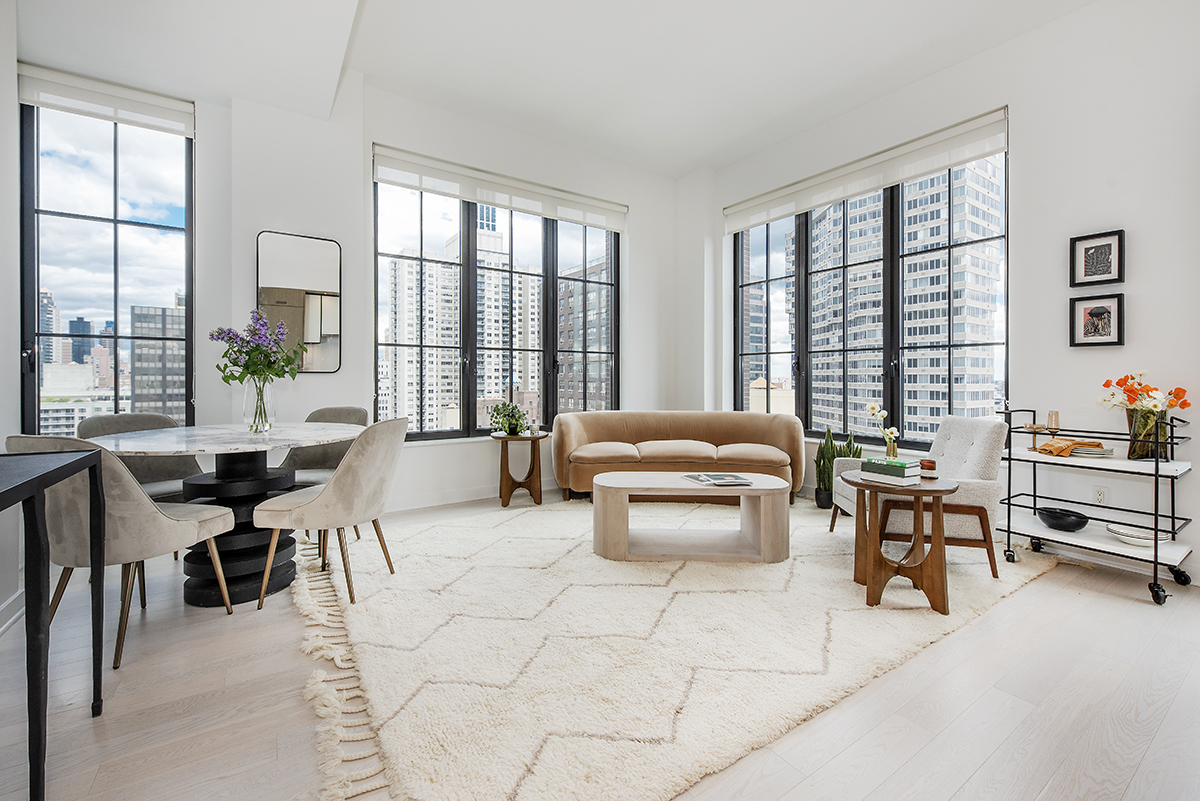Manhattan property financing: A guide for buyers
Posted by Wei Min Tan on March 24, 2025
Manhattan is one of the most expensive real estate markets in the world, but it’s also one of the most desirable. If you’re dreaming of owning a property in Manhattan, you may need to secure financing. There are a number of different ways to finance a Manhattan property purchase.
Since mid 2022 after mortgage rates doubled from 3 percent to 7 percent, about 70 percent of buyers are all-cash. With our clients, it’s closer to 85 percent all-cash.
Read about Wei Min’s style in Best Manhattan property agents and Role of a buyer’s broker.
Types of Manhattan property financing
Traditional banks
The most common option is to get a mortgage from a US or foreign bank. Mortgages are loans that allow you to borrow money to purchase a property. You will then repay the loan over time, plus interest. In the US, we have the 30-year fixed rate mortgage which means the interest rate is locked for 30 years.
TD Bank, Chase, Bank of America are among the big lenders in Manhattan. However, the most important is to work with an experienced mortgage banker, not any random person assigned to you. This is where referral and experience comes in. With 20+ years of real estate experience, we have gone through a lot of mortgage bankers and treasure the select few we like to work with.
Line of credit
Buyers can also get a line of credit from their existing property and buy the new Manhattan property all-cash. For example, they may have property in their home country that have appreciated significantly in value and where the interest rate is much lower than in the US. In this case it makes sense to borrow from their existing property and buy the new property “all cash.”
Private lenders
Private lenders are individuals or companies that lend money to borrowers directly. They may offer more flexible terms than banks, but they may also charge higher interest rates.
Seller financing
Seller financing is rare in Manhattan because this property market is so liquid. Anyway, seller financing refers to an arrangement where the seller of a property agrees to finance the purchase for the buyer.
Client’s condo in Soho where financing was arranged through a mortgage broker who explored multiple lending options.

Qualifying for Manhattan property financing
A number of factors will affect your ability to qualify for Manhattan property financing, including:
Credit score
Lenders will look at your credit score to assess your creditworthiness. A higher credit score will generally mean you qualify for a lower interest rate and better terms.
Down payment
The amount of your down payment will affect how much you need to borrow and the interest rate you pay. Lenders typically require a down payment of at least 20% for a primary residence purchase but higher for investment property.
Debt-to-income ratio
Lenders will also look at your debt-to-income ratio to see how much of your income is going towards debt. A lower debt-to-income ratio will make you more attractive to lenders.
Property type
The type of property you’re buying will also affect your financing options. For example, it’s typically easier to get financing for a single-family home or condo than it is for a multi-family home or commercial property.
How to get started with Manhattan property financing
If you’re interested in getting Manhattan property financing, there are a few things you can do to get started:
Check your credit score
You can get your credit score for free from a number of different websites. If your credit score is not as good as it could be, there are steps to take to improve it before you start applying for mortgages.
Get pre-approved for a mortgage
Getting pre-approved for a mortgage will give you an idea of how much you can borrow and what your monthly payments will be. In Manhattan, all offers involving financing need to be presented with a pre-approval letter.
Start shopping for lenders
It’s important to compare offers from multiple lenders to get the best rate and terms. You can get quotes from different lenders online or by working with a mortgage broker.
Make an offer on a property
Once you’re pre-approved for a mortgage, you can start making offers on properties. If your offer is accepted, you’ll need to work with your lender to initiate the mortgage underwriting and finalize the financing.
Client purchased at this new development 202 Broome Street with favorable mortgage terms.
What We Do
We focus on global investors buying Manhattan condos for portfolio diversification and long term return-on-investment.
1) Identify the right buy based on objectives
2) Manage the buy process
3) Rent out the property
4) Manage tenants
5) Market the property at the eventual sale










































